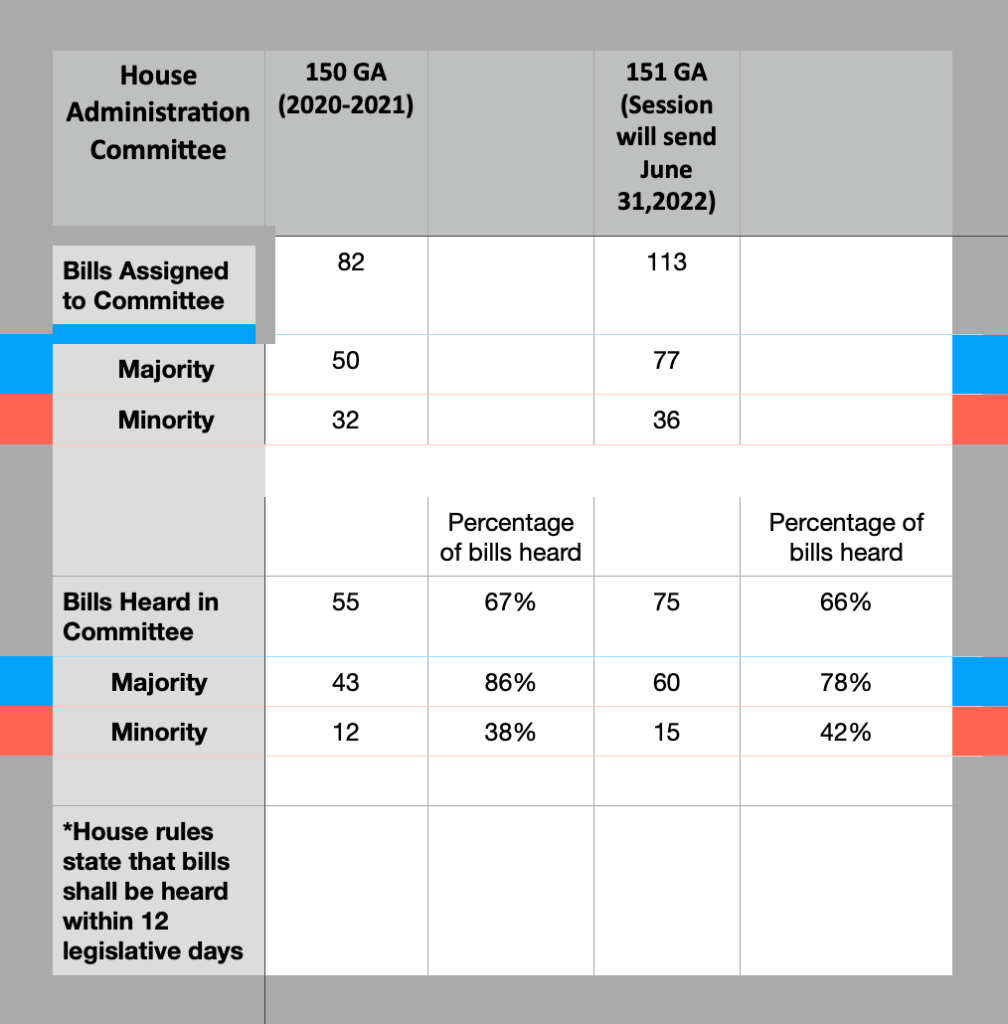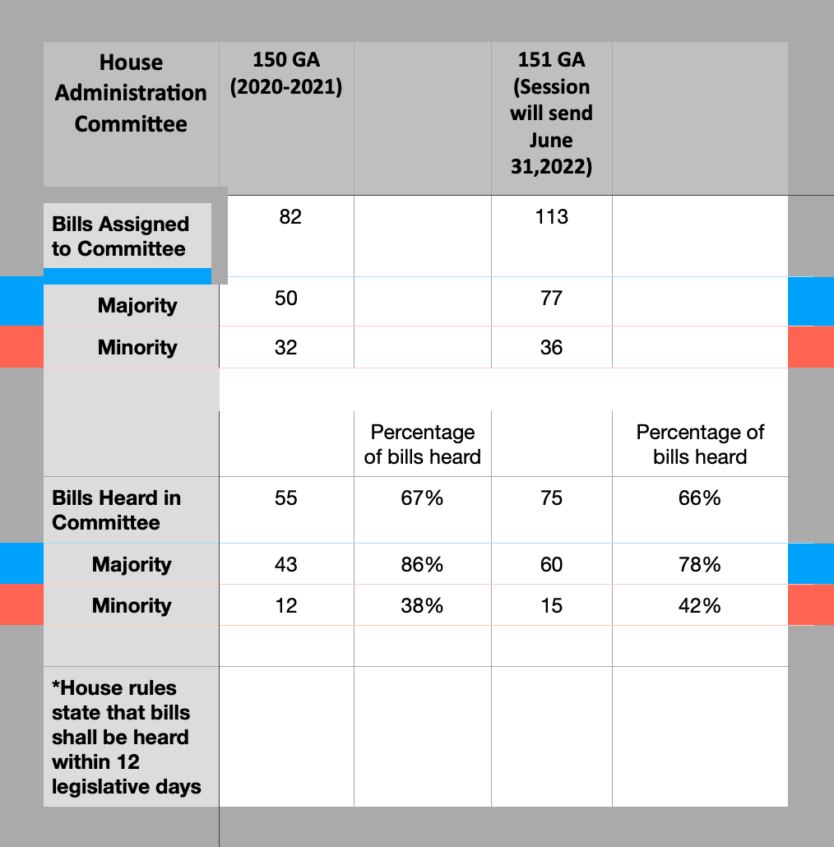A simple, but encouraging, House rule in Delaware’s General Assembly is that when a bill is submitted by any elected official it shall be heard in committee within 12 legislative days. This ensures that the elected officials you voted to represent you in Dover have the chance to draft legislation and have the opportunity to have their ideas heard and discussed by their peers, other elected officials that were also sent by their communities to represent their ideas, concerns, and thoughts in our State House. These committees are set up to be bipartisan so that no one party can dominate the discussion entirely and are the backbone that allows new ideas, sometimes counter to status quo thinking, to be entertained and encourage thoughts and experiences of others to enter the dialogue in a public setting.
Committees are not only necessary for bills to earn the right to be placed on the House floor, but they are critical to crafting better legislation, as new thoughts enter the discussion. One challenge I have heard from my fellow legislators is that although bills are submitted to a committee, often they are not brought before that committee for a hearing. That is surprising since House rules calls for each bill that is submitted to a committee to be heard within 12 legislative days.
Instead of just listening to what individuals felt about their own respective bills, I decided to find out if these claims could be substantiated by looking through the major committees in the Delaware House of Representatives (Administration, Education, Health & Human Development).
I have asked to see how many bills in the 150th General Assembly (2020-2021) and the 151st General Assembly (session will end on June 31, 2022) were submitted to each committee and how many of those bills were heard by those committees. I then asked to see how many of the bills heard in committee were bills submitted by the majority party or the minority party. Below are the results of the information pulled from the House Administration Committee, composed of leadership by both parties. Ultimately the Chair of the Committee, in this case the House Majority Leader, has the authority to put bills on the agenda.

In the House Administration Committee during the 150th General Assembly, 67% of the bill submitted to this committed were heard. Of the bills submitted by the majority party, 86% of them were heard by the committee. Of the bills submitted by the minority party, only 38% of them were heard by the committee. In other words, 62% of bills submitted by the minority party were never heard in committee.
During the 151st Committee, which will end on June 31st, 2022, 66% of the bill submitted to the committee so far has been heard. Of the bills submitted by the majority party, so far 78% of them have been heard by the committee. Of the bills submitted by the minority party, so far only 42% of them have been heard by the committee. In other words, 58% of bills submitted by the minority party have not been heard in committee so far.
There seems to be a correlation between what party submits the bill and if the bill will be heard in this committee. Remember, the House rules state that each bill submitted to the committee shall be heard within 12 legislative days. The committee has every right to vote down any bill once in committee and not choose to hear it on the House floor but what good is it doing the people of Delaware to ignore House rules and simply not allow for submitted bills to get their opportunity to be heard by a bipartisan committee.
In the next week, I will be sharing the numbers from the Education and Health and Human Development Committees.


